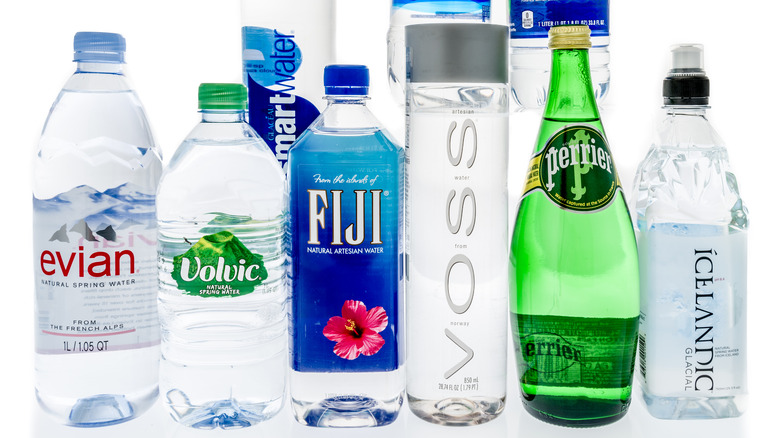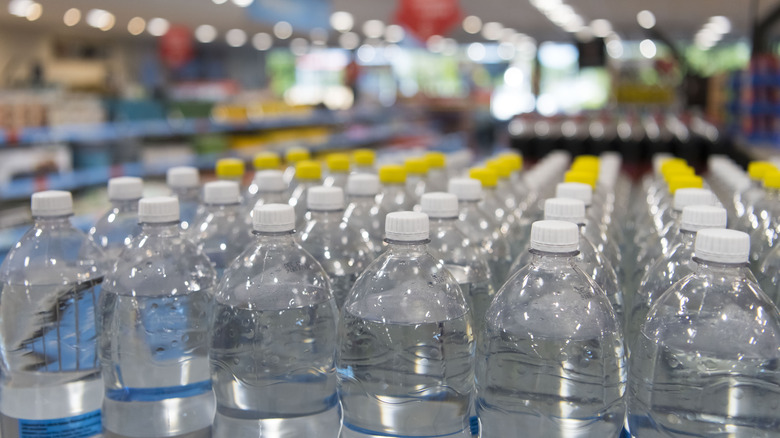Can Bottled Water Actually Expire?
While the complicated — and contentious — subject of food expiration labels has long been a matter of debate, perhaps no best-by date is as questionable as the one stamped on the side of a water bottle. After all, water can't really expire ... or can it?
According to Reader's Digest, the concern over the longevity of bottled water primarily revolves around the plastic itself, which is typically made out of polyethylene terephthalate (or PET), which can leach into the water over time — especially when exposed to excessive heat or sunlight — causing a potentially harmful chemical called antimony to be absorbed by the liquid.
Past studies have found that bottled water stored at high temperatures for an extended period of time is at the greatest risk of absorbing antimony. A 2007 study indicated that bottled water stored at 150 degrees Fahrenheit (equivalent to being stored in the direct sun or the trunk of a car during the summer) contained antimony levels above FDA limits after 38 days in storage (via Consumer Reports).
In extreme cases, the excessive consumption of this contaminated water could lead to neurological problems, weakened immune and reproductive symptoms, various cancers, and lung and heart problems. However, in the majority of cases, consuming small amounts of impacted water isn't likely to have any meaningful impact on your health. According to Healthline, the best way to safely store bottled water long-term is in a cool place out of direct sunlight and away from chemicals and cleaning supplies.
Expiration dates on water aren't required, according to the FDA
Although the FDA doesn't require bottle water manufacturers to include an expiration date on the label — since the agency has determined that water has an indefinite safe shelf life — many water brands choose to include a best-by date on their packaging, either out of an abundance of caution or the desire to sell more water (via Food Safety Magazine).
In the past, the safety of expired bottled water has made national headlines, such as in 2019, when an emergency water distribution effort in Newark, New Jersey, was halted due to a batch of expired bottles, as reported by The New York Times. After a large portion of the city's drinking water was contaminated with lead, attempts to pass out bottled water to the community were thwarted when locals discovered that many of the bottles were past their best-by date. City officials contacted the FDA to clarify whether or not the water was safe to drink, and the New Jersey Department of Health had to hold a news conference verifying the safety of the water for emergency use (via Consumer Reports).
As a rule of thumb, if you have water that is long past its expiration date (particularly if it hasn't been stored in a cool environment), it may be best to steer clear of those bottles. However, in an emergency situation, if it comes down to choosing between expired bottled water and no water at all, the expired water wins every time.

